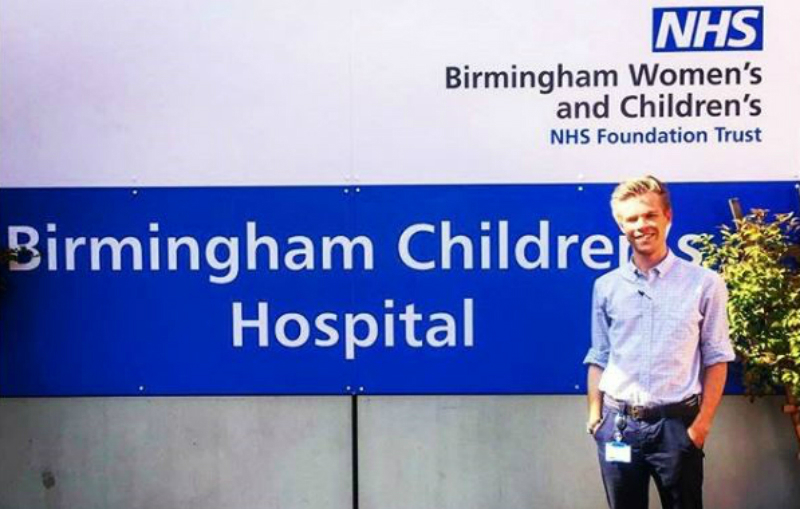Week number 2 at BCH was amazing. Due to some staff absences, I spent my week split between Neuro-Oncology and Haematology.
Both of these departments are highly specialist and although I've received a small amount of teaching about them at medical school, nothing quite compares to experiencing cases in the clinical environment.
Neuro-Oncology is immensely academically challenging. Everything is variable: the disease course, the clinical presentation, and resulting treatment decisions - all can differ hugely between individual cases. Understatement of the year, I was in awe of the consultants.
The importance of working as a team
Like all patients being investigated for a suspected cancer, patients under the care of the Neuro-Oncology team are discussed at *buzzword alert* - a multi-disciplinary team meeting - or MDT for short.
This brings together staff from across the hospital including: specialist cancer doctors (medical oncologists), brain and spine surgeons (neuro-surgeons), radiotherapy specialist doctors (clinical oncologists), imaging specialist doctors (radiologists), advanced clinical nurses (advanced nurse practitioners), nurse specialists, administrative staff (MDT coordinators and data managers), dieticians, dental practitioners, and myself (the medical student).
Having a keen eye
Having all of these key staff looking over the cases at the same time allows for collaboration between departments to maximise the quality of patient care. Each member of the team is casting their eye over the case from a slightly different perspective, ensuring every angle is looked at to enable the best treatment plan to be made for the patient.
Speaking of casting eyes over the case, I mean this in the literalist sense in that we all viewed each patients scan images. These allow us to see the human body in great detail, having the ability to scroll through the brain slice by slice and follow the structures as they evolve in three dimensions.
It truly is mesmerising to witness, especially listening to the radiologist and surgeons discussing fine anatomical detail without the slightest hesitation; the skill in the room was unmeasurable.
Collaboration in the NHS
This ethos of collaboration, although formalised in the MDT, is true across every area of the NHS I have experienced so far. Everyone is working for a greater, wider cause, selflessly for the benefit of their patients and the institution. I think it's this quality that is at the core of the NHS's work, embedded in the identity of its staff and driving its success, even during current service pressures.
I am absolutely loving my time at BCH, being able to both help the medical team whilst experiencing and learning things we very rarely get exposed to at medical school. As I write this post, I have reached another milestone in my medical career. I sat waiting for the haematology MDT to begin, waiting for an email to arrive on my phone screen. The email that would announce that my fate had been decided.
Embracing the journey
When it arrived, I anxiously sat up straight as I logged into the exam results web page and waited for the display to load. Medicine is such a long journey, one which for me began back in secondary school, and is full of milestones such as this. Thankfully I'd made the grade and can proudly say that I am now a final year medical student; one year away from qualifying.
Everything is getting very real now. I'm starting to feel more capable in the clinical environment, more and more is expected of me by my seniors, and I'm beginning to think about where I'd like to work post-graduation. It all feels very surreal, to think back at that 13 year old me and see how much I've grown - not only in height, but also a professional - I honestly wouldn't change any step of my journey so far.
Neither would I change any of the team that I've had alongside me for the journey; friends, family and colleagues have all helped to make this dream a reality. I'm excited to see what the next two weeks have in store for me at BCH, and even more excited to begin the home straight at UoB. One final year to polish my skills and prepare for life on the wards.
